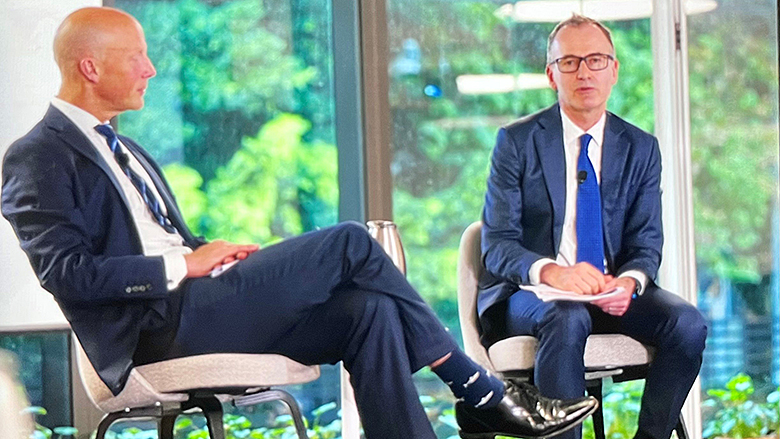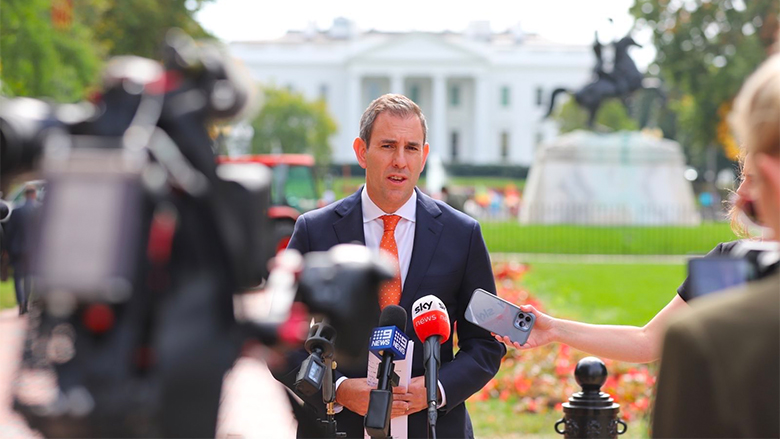Reserve Bank of Australia assistant governor of financial markets Christopher Kent provided a keynote speech focused on exchange rates and inflation at the opening of the Commonwealth Bank Global Markets Conference on Monday.
Mr Kent was introduced by Andrew Hinchliff, Commonwealth Bank’s group executive of institutional banking and markets, who set the scene for the keynote by remarking that factors such as high inflation, increased government debt, war in Ukraine, disruption to global supply chains and climate change add up to “one of the most uncertain times I think I’ve faced [in my career]”.
“I can't think of too many better people to talk about everything that is going on in today's world than Chris,” said Mr Hinchliff.
Mr Kent’s keynote, delivered at Commonwealth Bank’s head office in Sydney, began by outlining how high inflation reflects “disruptions to supply coupled with strong demand”, and has sparked an “unprecedented” response from central banks around the world.
Mr Kent described the Reserve Bank’s recent increases to the cash rate target (from 0.1 per cent in April to 2.6 per cent in October) as “sizeable and rapid”, adding that the Board expects to increase interest rates further.
“The size and timing of rate increases in Australia will depend on incoming data — including the response of household spending to the tightening in financial conditions that is still working its way through the system,” said Mr Kent. “Rate increases will also depend on the outlook for inflation and the labour market.”
His address provided a detailed consideration of issues related to inflationary pressures, particularly how the “long shadow” of the end of the mining investment boom contributed to slower-than-expected wages growth; and the effects of the significant appreciation of the US dollar in 2022.
The keynote was followed by a robust Q&A, which Mr Hinchliff began by asking about the domestic bond market following the pandemic, and followed up with a question about how well Australian mortgage holders can be expected to cope with rapid interest rates.
“Most households will manage, but of course all of their budgets are under pressure from rising rates and high rates of inflation ,” said Mr Kent, noting the many borrowers in Australia are well ahead of their scheduled payments and so it’s likely to only be a small share of borrowers who will struggle. “We're going to be monitoring the effects of increased rates on household spending — and remember, we do actually want it to have an effect on household spending.”
Other questions for Mr Kent from the audience touched the effect of climate change on Australia’s productive capacity; the potential “lagging effects” of rising interest rates on household spending; and the prospects of an Australian recession.
“We don’t expect a recession but there are lots of uncertainties — there always are, but especially now, and inflation needs to come down,” said Mr Kent. “So it’s a very narrow path.”
Conducted over five days in Sydney and Brisbane, the Global Markets Conference invites leaders from public policy, rating agencies, issuers and investors from Australia and around the world to discuss key economic issues. The 2022 conference, the 12th year of the event, is the first time it’s been held in-person since the start of the pandemic.
Read the transcript of Mr Kent’s address at the Reserve Bank of Australia site.



